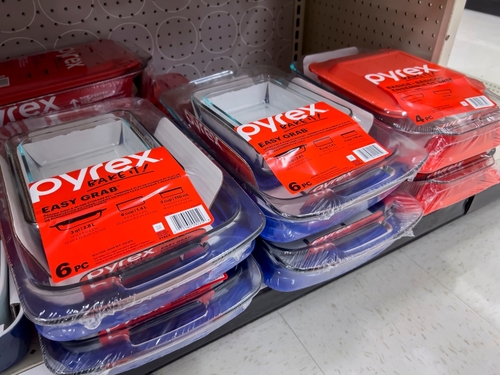On Friday, U.S. Sen. Bob Casey (D-PA) asked the Federal Trade Commission to stop the closure of Charleroi, Pa.-based Pyrex and to investigate the private equity firm Centre Lane Partners’ for illegal activity in acquiring the plant without regulatory approval.

Casey released a new report, Charleroi, PA: An Example of How Private Equity is Shattering the Glass Industry and Leaving Workers Behind, that he said outlines how Center Lane Partners used financial engineering and shady business deals that culminating in the partnership’s decision to close the plant, abandoning its 132 year operation in Pennsylvania and leaving more than 300 workers without jobs.
“Private equity crushing Charleroi’s generational legacy of glass manufacturing is yet another example of Wall Street screwing over Pennsylvania workers. The plant’s closure is a slap in the face to workers, their community, and the people of Pennsylvania,” Casey said. “I am working every day to protect union jobs and hold Wall Street executives accountable for the havoc they’ve wreaked in our Commonwealth.”
In a letter to FTC Chair Lina Khan, Casey, a member of the Senate Finance Committee, called on the commission and the U.S. Department of Justice to block the plant’s closure pending a full investigation into the firm for its efforts to evade regulatory rules and “strip the plant bare.
Anchor Hocking abruptly announced plans to close the Pyrex glass manufacturing plant in September, Casey said. In his report, Casey highlights how private equity firms like Centre Lane prioritize short term ownership of companies to maximize profits at the expense of the companies’ long-term health.
Specifically, the report said Centre Lane purchased two of the country’s largest home glassware brands, Pyrex and Anchor Hocking, even though it initially failed to get the necessary regulatory approval to purchase Pyrex in fall of last year. Casey wrote that Centre Lane’s actions constituted an effort to get a potential monopoly in the home glassware manufacturing market. Because of this, he asked for an immediate federal investigation.
Casey also wrote that the private equity partnership engaged in questionable financial engineering and shady business deals as a way to consolidate the home glassware manufacturing at an Anchor Hocking facility outside of Pennsylvania.
At issue is the purchase of Pyrex. Casey said Centre Lane purchased Pyrex’s parent company Instant Brands after it filed for bankruptcy. After a bankruptcy auction in September of 2023, Centre Lane was given court approval to acquire Instant’s housewares and appliances business, including Pyrex and Corelle, among other brands, in two separate transactions for $228.2 million and $122.6 million. Both of those transactions exceeded the Hart-Scott-Rodina (HSR) Act filing threshold for an FTC premerger review, which Casey said Centre Lane never received. Instead, Instant proposed a new plan wherein it would emerge from bankruptcy under the ownership of its prior lenders, a plan that was approved in February of this year. The housewares division emerged from bankruptcy under the name “Corelle Brands” with Centre Lane holding 33.6 percent of the company.
Less than a week later, Casey said, Centre Lane purchased the remaining 66.4 percent of Corelle from its majority lenders for approximately $38.5 million. Days after that Centre Lane transferred ownership of Corelle to a subsidiary of Anchor Hocking for common stock valued at approximately $79.8 million. Six months later, Anchor Hocking announced the closure of the Pyrex plant.
“Given this timeline, it is fair to question why a PE firm—seemingly as sophisticated and savvy as Citadel—decided to acquire a company coming out of bankruptcy only to determine less than a week and a half later that it was no longer a viable investment,” Casey wrote. “But it is even more perplexing that Centre Lane was able to acquire two-thirds of Corelle for merely $38.5 million in March 2024 and transfer it to Anchor Hocking days later at yet another price ($79.8 million)—all while evading FTC oversight—after it previously bid nearly $230 million for the same company and filed for regulatory approval in September 2023.”